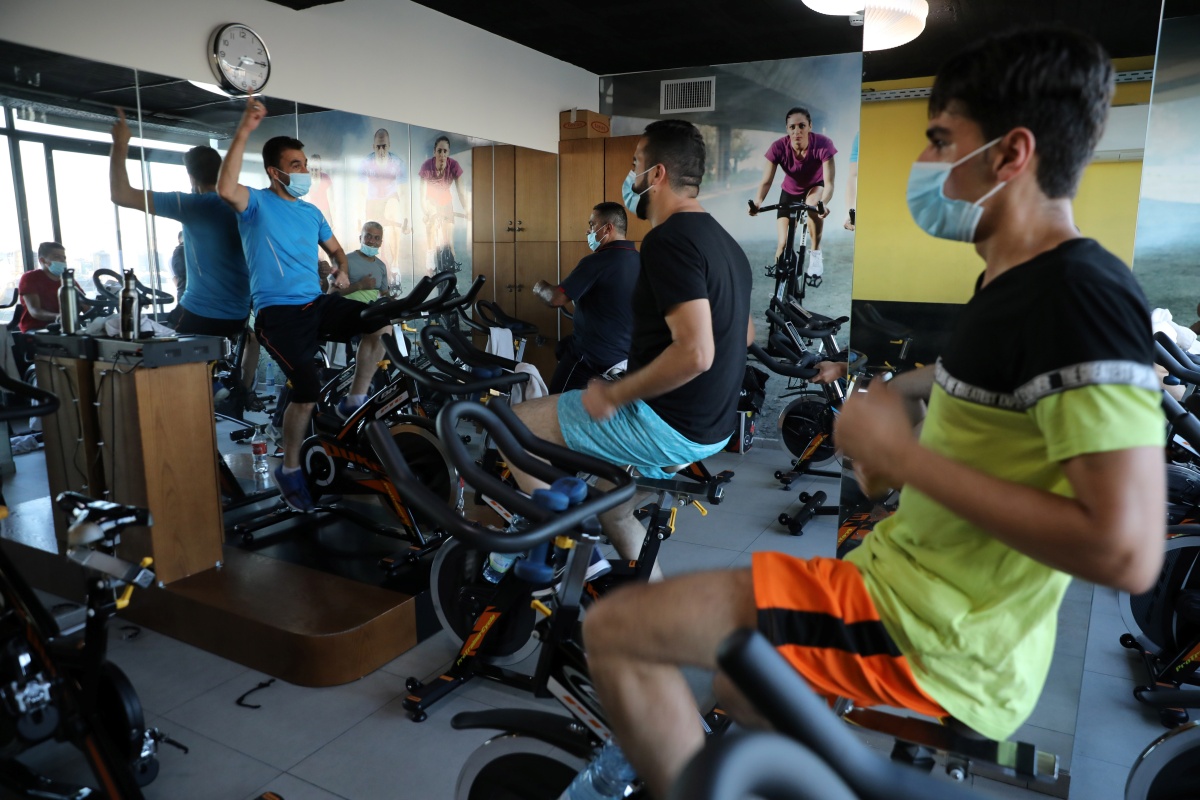Food Inflation
The Indian economy faces a multifaceted challenge as food prices continue to rise, exerting significant pressure on households and policymakers alike.
“Exercise generates millions of respiratory aerosols during a test, many of a size reported to have virus-carrying potential. The higher the exercise intensity, the more aerosols are produced,” Allison said.

(200807) -- HEBRON, Aug. 7, 2020 (Xinhua) -- People wearing masks do exercise in a gym, after Palestinians eased the precautionary measures of COVID-19, while Palestinian Health Ministry urged citizens to strictly abide by public health measures, in the West Bank city of Hebron, on Aug. 6, 2020. (Photo by Mamoun Wazwaz/Xinhua)
High-intensity exercise produces more respiratory aerosols that can be harmful and aid in the transmission of Covid-19, and using a high-efficiency particulate air (HEPA) device can effectively filter out the aerosols, finds a study.
Aerosols are a common component of breath, and a typical mode of transmission for respiratory viruses like Covid-19 to spread to other people and surfaces.
Advertisement
The researchers from Mayo Clinic in the US set up a special aerosol laboratory in a plastic tent with controlled airflow. Two types of laser beam particle counters were used to measure aerosol concentration at the front, back and sides of a person riding an exercise bike. Eight exercise volunteers wore equipment to measure their oxygen consumption, ventilation and heart rate.
Advertisement
The aerosol concentrations increased exponentially throughout the test. Specifically, exercise at or above 50 per cent of resting heart rate showed significant increases in aerosol concentration, as per the findings published online in CHEST.
“In a real sense, I think we have proven dramatically what many suspected? That is why gyms were shut down and most exercise testing laboratories closed their practices. Exercise testing was not listed as an aerosol-generating procedure prior to our studies because no one had specifically studied it before,” said Thomas Allison, Director of Cardiopulmonary Exercise Testing at Mayo Clinic in Rochester.
“Exercise generates millions of respiratory aerosols during a test, many of a size reported to have virus-carrying potential. The higher the exercise intensity, the more aerosols are produced,” Allison said.
In a follow-up study, the team found that a HEPA filter could mitigate the aerosols generated during exercise testing by filtering them out of the air immediately after they came out of the subject’s mouth.
“We found that 96 per cent plus or minus 2 per cent of aerosols of all sizes generated during heavy exercise were removed from the air by the HEPA filter. As a result, we have been able to return to our practice of performing up to 100 stress tests per day without any recorded transmission of Covid in our exercise testing laboratories,” Allison said.
Advertisement